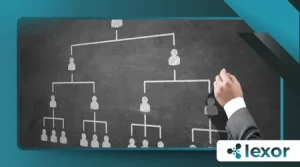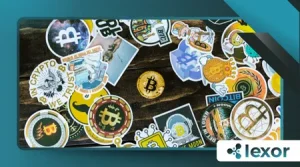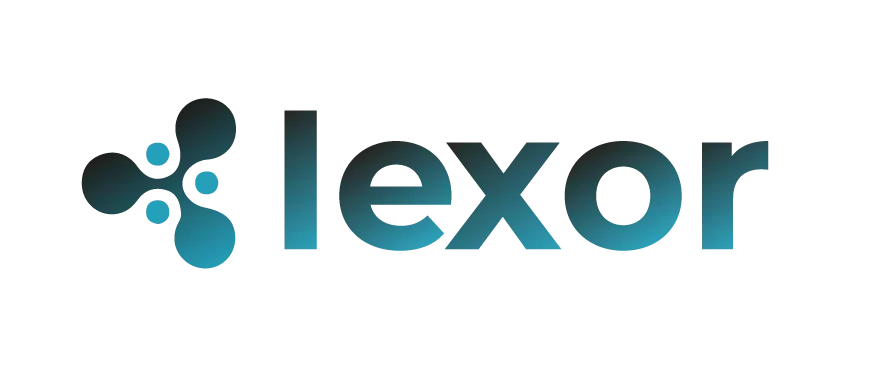What Is a DAO? A Beginner’s Guide to Decentralized Organizations

What is a DAO? A Decentralized Autonomous Organization (DAO) is a blockchain-based entity that operates without centralized leadership, relying instead on smart contracts and collective governance.
Imagine a company where every major decision—from fund allocation to strategic direction—is voted on by stakeholders, with no CEO or board calling the shots.
This is the promise of DAOs: a trustless, transparent, and democratic way to coordinate at scale.
But how do they actually work? Who controls them? And why are they becoming a cornerstone of Web3?
This guide dives deep into the mechanics, real-world applications, and challenges of DAOs, providing a clear, authoritative breakdown for beginners and enthusiasts alike.
The Anatomy of a DAO: How Decentralized Governance Works
DAOs are built on blockchain technology, primarily Ethereum, which enables smart contracts—self-executing agreements that automate rules without intermediaries.
These contracts define how proposals are made, how votes are tallied, and how funds are managed.
Unlike traditional corporations, where power is concentrated at the top, DAOs distribute authority among token holders.
For example, in Uniswap DAO, holders of UNI tokens can propose and vote on changes to the protocol, such as fee adjustments or treasury allocations.
The more tokens you hold, the greater your voting power—though some DAOs experiment with quadratic voting to prevent plutocracy.
++How to Set Screen Time Limits While Encouraging Learning
However, this system isn’t flawless. The infamous 2016 DAO hack exposed vulnerabilities in early smart contract design, leading to a $60 million exploit.
Since then, security audits and multi-signature wallets have become standard, but risks remain.
How DAOs Function in Practice: Beyond Theory

DAOs aren’t just abstract concepts—they’re actively reshaping industries. Take PleasrDAO, a collective that pools funds to acquire culturally significant NFTs.
In 2021, they purchased Edward Snowden’s “Stay Free” NFT for $5.4 million, showcasing how DAOs can democratize access to high-value assets.
++What Is Tokenization and Why It Matters
Another example is MakerDAO, the governing body behind the DAI stablecoin. Instead of a central bank, thousands of stakeholders vote on collateral types, interest rates, and risk parameters.
This decentralized approach ensures stability without reliance on a single entity.
Yet, coordination remains a challenge. The ConstitutionDAO—a crowdfunded effort to buy a rare U.S. Constitution copy—raised $47 million in days but failed due to logistical hurdles.
Passion alone couldn’t overcome the complexities of decentralized decision-making.
The Strengths and Pitfalls of DAOs
Advantages: Transparency and Efficiency
DAOs eliminate bureaucratic red tape. Since all transactions are recorded on-chain, corruption and mismanagement are harder to conceal.
++What Is Decentralization in Blockchain?
A 2024 Deloitte report found that DAO treasuries now exceed $30 billion, proving their growing influence.
Challenges: Legal Uncertainty and Security Risks
Regulators are still catching up. The SEC’s 2025 guidance suggests some DAOs may qualify as securities, raising compliance questions.
Additionally, smart contract bugs—like the $325 million Wormhole bridge exploit—highlight ongoing security concerns.
Could DAOs eventually replace traditional corporations? Some believe so, but widespread adoption requires solving scalability, legal recognition, and voter apathy.
A DAO’s Real-World Impact: Disrupting Traditional Models
Think of a DAO as a beehive. No single bee dictates the hive’s direction, yet through collective effort, they build, defend, and sustain their community.
Similarly, DAOs leverage decentralized intelligence to achieve goals no single individual could.
A prime example is The LAO, a venture DAO that has funded over 50 startups. By pooling capital and expertise, it operates like a Silicon Valley fund—but with decisions made by hundreds of members instead of a handful of partners.
Could this model revolutionize philanthropy? Gitcoin DAO already directs millions toward open-source projects, proving that decentralized funding can drive innovation.
The Role of Incentives in DAO Participation
One of the most compelling aspects of DAOs is their ability to align incentives through tokenomics.
Unlike traditional organizations where engagement is often tied to employment contracts, DAOs reward active contributors with governance tokens, staking yields, or revenue-sharing models.
For instance, Curve DAO distributes CRV tokens to liquidity providers, ensuring those who contribute to the ecosystem also have a say in its future.
However, incentive design remains tricky—poorly structured rewards can lead to short-term speculation rather than long-term governance participation.
The key is balancing immediate financial benefits with sustainable community growth.
DAOs vs. Traditional Organizations: A Paradigm Shift
The rise of DAOs challenges centuries-old corporate structures by proving that decentralized collaboration can be just as effective—if not more so—than top-down management.
While a traditional company might take weeks to approve a budget change, a DAO can execute decisions in hours through on-chain voting.
This agility is particularly valuable in fast-moving sectors like DeFi, where protocols must adapt quickly to market shifts. Yet, DAOs aren’t a silver bullet.
They struggle with tasks requiring subjective judgment, like conflict resolution or creative direction, areas where human intuition still outperforms code.
The future likely lies in hybrid models, blending the efficiency of decentralization with the nuance of centralized oversight where needed.
The Future of DAOs: What’s Next?
As blockchain interoperability improves, DAOs may expand beyond Ethereum to networks like Solana and Polkadot. Cross-chain governance tools could enable even larger, more complex organizations.
However, mass adoption hinges on simplifying user experience. Most people still find crypto wallets and gas fees intimidating. Projects like Aragon and DAOhaus are working on no-code solutions to lower barriers.
Will DAOs eventually govern cities or even nations? Experiments like CityDAO—which purchased land in Wyoming for decentralized community development—hint at the possibilities.
Conclusion: The Dawn of Decentralized Collaboration
What is a DAO? It’s more than a technological innovation—it’s a cultural shift toward collective ownership and trustless cooperation.
While challenges like regulation and security persist, DAOs represent a radical rethinking of how humans organize.
For those eager to explore further, check out Ethereum’s DAO resources and Aragon’s governance tools.
Frequently Asked Questions (FAQs)
1. Are DAOs legal?
The legal status varies by jurisdiction. Some countries recognize them as legal entities, while others remain cautious. Always consult a blockchain lawyer before launching a DAO.
2. How do I join a DAO?
Most require holding governance tokens. Research projects like MakerDAO or Compound to start participating.
3. Can DAOs be hacked?
Yes, smart contract vulnerabilities exist. Always verify audits and use multi-signature wallets for added security.
4. Do DAOs pay taxes?
Tax treatment is evolving. Some DAOs issue 1099 forms, but compliance remains complex.
5. What’s the biggest DAO today?
As of 2025, Uniswap DAO and MakerDAO remain among the largest by treasury size and active participants.
